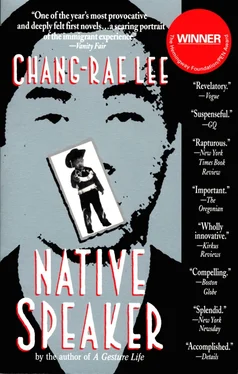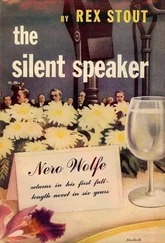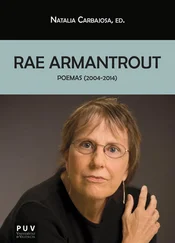After our son, Mitt, was born we all bathed together. He loved it. He was small enough that the tub was a pool for him. He learned to swim in it. When we finally coaxed him out, after all the splashing and laughter, he would sit on the edge of the tub and twist his knuckles into his eyes, which were red from the soapy water. Once, he slipped on the wet tile while horsing around and landed hard on his head and back; when we reached him his eyes jittered in their sockets and scrolled up into his head. I thought he was dead, but Lelia and I both yelled and his eyes dropped back down and he started moaning. We took him in a cab to the emergency room and he stayed overnight for observation. The next day he was perfectly fine. One lucky, hard-headed boy.
Now that Lelia was back in the country I wondered if we would even keep the place. Still, I kept thinking she might stop by during the daytime, key in to the apartment, peek inside. She’d find me lone and innocent, waiting for her.
But this didn’t happen. Instead I started loitering at the café across the street from our friend Molly’s building where Lelia had been staying since her return, watching the entrance from a window table. I waited whole afternoons. Women of Lelia’s shape would approach the door, buzz an apartment, look around, slip inside. A thickly bearded photographer had his studio on the floor above Molly’s. Sometimes he would look down from his window and wave at them first, signaling something. Then they would step inside. Later in the day, handsome young men in blue-collar clothes would ring the bell. The men always came back down before the women did. Then they would all return, go upstairs, and then leave again. This sequence occurred throughout the day. I didn’t know the particular nature of the work.
I kept wondering if Lelia had ever spoken to the photographer, or perhaps gone inside. I buzzed once and asked for her by name, but the gruff voice said I had the wrong place.
* * *
I drove up to the offices earlier than I’d planned. I wanted to see Jack. I loved the worn-down form of that handsome laughing Greek. To look at him was like reading a relic typeface, like the first letter-block of a book, maybe the letter Y, his frame bent a little sideways as though a mule had fought one arm, the wide shoulders set back, curiously askance, a physical assemblage that belied his uncowering nature. There was the head and brow, its mass like a forged bell, the thousand tiny pocks in his swarthy cheeks, his thick moustache, unvain and wild, the full, almost tortured lips, perennially split in the middle like he’d been punched or roughed up a little. His off-the-rack gray suits were always just a little too big for him, though he himself was a big man, six-two or — three, two-twenty but light on his feet, and the effect when he moved toward you with his jacket unbuttoned was that of a gargantuan moth, gliding, fluttering a bit, completely silent.
His wife, Sophie, a stunning Sicilian woman whose picture on his desk I had long been in love with, was dead nearly five years from cervical cancer. I saw her alive only a few times, the last time just before the diagnosis, when she dropped off his lunch in a brown bag and kissed him twice on top of his wiry-haired salt-and-pepper head.
“Yakavos,” she called back to him lovingly, in her movie-star accent, moving those wide flat hips out past where I sat. “You ought to come home early tonight.”
When I sat with him I’d pick up the brass-framed photograph of her and admire it. He seemed to like this.
“Our anniversary would have been next week,” he said now. “The twenty-ninth of February. She wanted to get married on the leap year because she knew no other woman in her right mind would want to do it.”
“You agreed.”
“Of course.”
I put the frame down, turning it back to face him. We were eating a lunch of ordered-in sandwiches at his desk, grilled Reubens, corn chips, pickles, hot coffee, fried honey cakes. The daily killing of ourselves. Jack, as always, had peeled open a tin of shriveled purple olives. We were building a pile of the pits on a file photo of one of his former subjects, a South American woman with a magnificently crooked nose. Mrs. Ochoa-Perez, an exquisite embassy wife, was very former, I knew, because Jack hadn’t been on outside assignment in several years at least. Hoagland had retired him, plain and simple, after Jack requested a quiet exit. He’d had enough of our life. Normally that meant a two-week debriefing at the firm’s house upstate in Greene County, a modest send-off here in the office (a few bottles of whiskey, some laughs) and then a good pension check every month, but Jack was an old salt if there was one, too observant, too wise — he’d taught Hoagland most everything — and he was too valuable for them to let go completely.
While Jack was on leave taking care of Sophie, Hoagland told me how Jack had been abducted in Cyprus by a red insurgent faction in ‘sixty-four. At the time he was working piecemeal for the CIA. In Cyprus, Hoagland said, Jack’s captors decided they were going to break every bone in his body with a small hammer, from the toes up. Then they would put a bullet in his brain. They started on the job but stopped when someone crashed a donkey cart into the bottom of the house. The way Hoagland tells it, when they went down to deal with the ruckus, Jack struggled with his guard, shot and killed him, then dragged himself onto the roof and flagged down a policeman from a prone position. But then you felt everything Hoagland said was apocryphal, always questionable. If it happened at all, Jack never mentioned it. Our mode at the firm was always to resist history, at least our own.
The floor was quiet while we ate our lunch; no one else was in the office this week, except for Candace, Hoagland’s secretary. You could see the whole floor at once, because here there were no walls, not even those carpet-lined partitions many offices will use. Just the appropriate number of desks arranged more or less pentagonally about the floor with the secretaries positioned in the center. Only Hoagland had a private office, on the north side of the floor, and even that was walled by clear soundproof glass, so that you saw him pacing around in there during the day, gesturing wildly as he spoke on the telephone, nervously jiggling handfuls of red Yahtzee dice like a cache of jewels. Hoagland wasn’t in there now, though he was around, as always, lurking about, snooping somewhere on the grounds. He often took constitutionals with his dog, Spiro, an old gray-and-white shepherd mix that limped devotedly behind him on stiff arthritic hips. Or he could be just outside the door. You never knew. I always checked if he was in his office, kept one eye in his direction.
Our building was a five-story professional office, trapezoidal, contemporary, with smoked windows and a blush-red granite facade, the structure nestled in among other office buildings in a large, well-wooded corporate park in Purchase, New York, fifteen or so miles north of the city.
We occupied the top floor, under the name of Glimmer & Company. If you pushed us on it, if you were insistent, if you caught us alone in an elevator or on the back of an airplane or in a motel-bar lounge, we were consultants of ambient lighting to military installations. We said it exactly like that. And on the floors below us, in order of descent, were three small firms of computer dealers, attorneys, and real estate brokers. On the ground floor were two physicians’ offices, a podiatrist and a psychiatrist. They enjoyed most of the building’s traffic. You were always holding open doors for people either hobbling or hunched over, heads in their hands.
When you got out on the fifth floor you faced a flat cream-colored wall broken only by a metal security door with the company logo in plain block lettering. Beside the door was a mirror and a wooden table on which was placed a bouquet of artificial flowers. Orchids. No lobby, no receptionist. A camera had been installed behind the mirror. Hoagland always denied that it was his idea. Candace monitored a video screen on her desk. She had a button for the door by her foot.
Читать дальше












